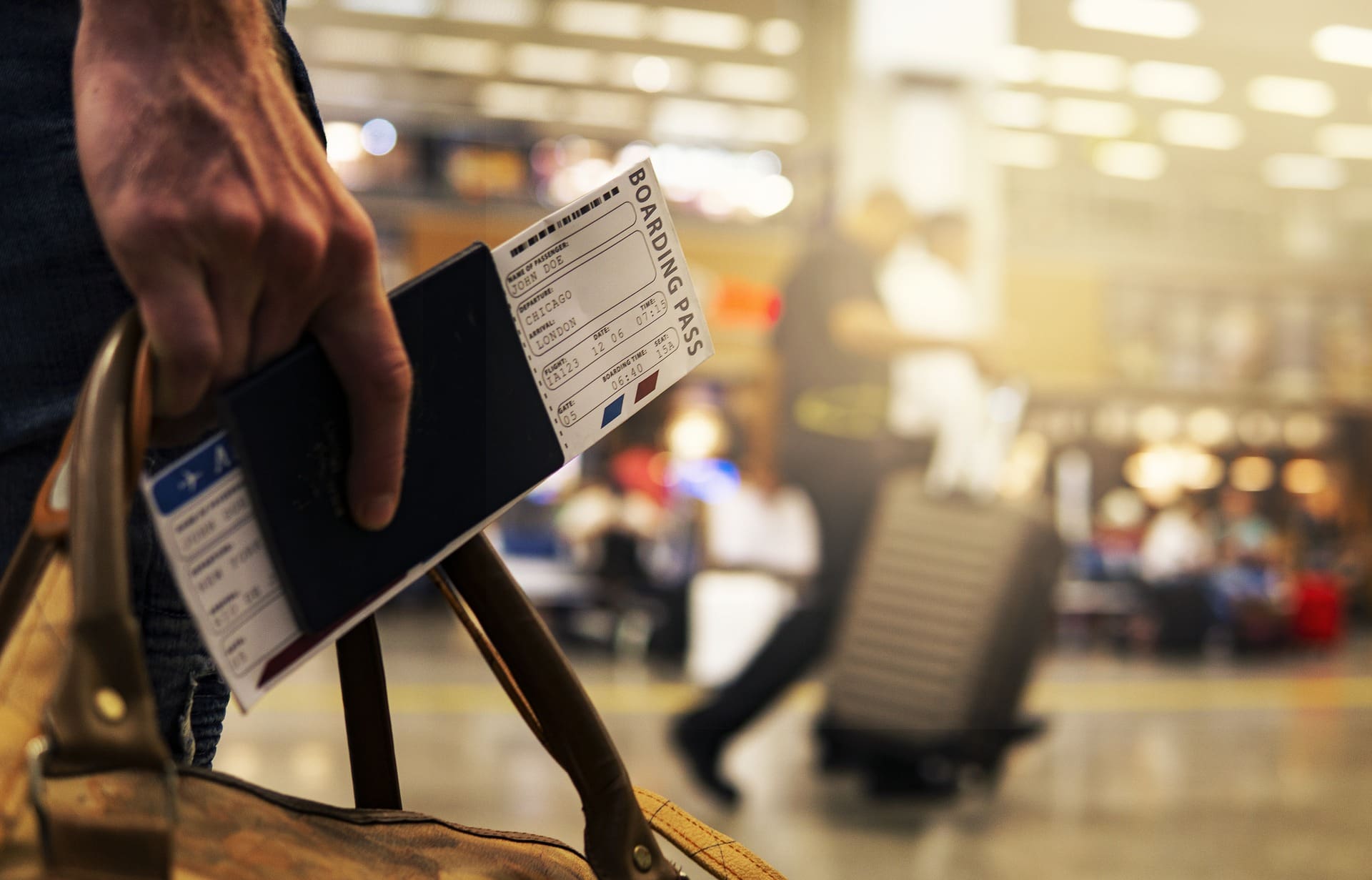
Expat retirement: Which countries are affected by Frozen State Pension?
Article updated: 21 March 2025.
When retiring abroad, understanding the impact of the UK’s frozen state pension policy is crucial. Over half a million retirees face financial challenges as their pensions remain stagnant in certain countries. This article explores how the frozen state pension affects expat state pensions abroad, providing insight into which countries are impacted and offering advice on how to navigate this issue.
If you are planning to retire abroad, understanding how this policy might impact your finances is crucial.
Understanding the UK’s Frozen Pension Policy
In the UK, pensioners benefit from the “triple lock” system, which ensures that State Pension payments increase annually by the highest of three measures: 2.5%, price inflation, or average wage growth.
This system is designed to maintain the purchasing power of your State Pension over time.
However, if you choose to retire outside the UK, you may find that your State Pension payments are “frozen”—that is, they remain at the level they were at either the date you started receiving them or when you moved to your country of residence.
As of 2023, over 520,000 UK pensioners living overseas are affected by this policy, according to the All-Party Parliamentary Group on Frozen British Pensions.
This number has increased by 10% over the past decade, highlighting the growing concern among retirees.
This policy can significantly impact your retirement income over time, especially as living costs increase.
For example, in Australia, where UK pensions are frozen, a pensioner who retired 20 years ago receives just £4,140 per year, compared to £11,500 if they had stayed in the UK.
With the cost of living in Australia consistently higher than in the UK, the real value of their pension has eroded significantly.

Steve Thompson’s Story: A British Retiree in Thailand
Steve Thompson, a 72-year-old retiree, moved to Thailand in 2017 after a long and successful career in the UK.
Attracted by the lower cost of living and the vibrant culture, Steve envisioned a peaceful and fulfilling retirement.
However, like many British pensioners abroad, Steve encountered financial challenges due to the UK’s frozen pension policy.
Steve’s Situation
When Steve retired, his UK State Pension was set at £6,360 per year.
If he had remained in the UK, his pension would have benefited from the triple lock system and would be approximately £11,500 per year.
Unfortunately, because Steve chose to retire in Thailand, his pension was frozen at £6,360 and will stay at that level for as long as he lives there, resulting in a cumulative loss of tens of thousands of pounds.

The Impact
This significant shortfall has deeply affected Steve’s retirement lifestyle.
Although Thailand’s cost of living is lower than that of the UK, rising prices over the years have stretched Steve’s income.
What was once a comfortable retirement has become a careful balancing act, with Steve needing to make difficult choices about his spending to ensure his basic needs are met.
The financial strain has forced him to dip into his savings more frequently, putting his long-term financial security at risk and has left him feeling unsupported by a system that has not adjusted to his changing needs in retirement.
Where Are UK Pensions Frozen?
The policy on freezing pensions is inconsistent, and it can be confusing to determine where it applies.
Some countries, including many former Commonwealth nations such as Canada, Australia, and New Zealand, are subject to frozen pensions.
Conversely, there are countries with no historic ties to the UK, such as Puerto Rico and Macedonia, where pensions are not frozen.
Whether your State Pension will be affected depends entirely on where you decide to spend your retirement years.
The frozen pension policy dates back to the 1950s, when the UK government first decided not to index-link pensions for expatriates in certain countries.
Despite numerous campaigns and debates in Parliament over the decades, the policy has remained largely unchanged.
This historical context underscores the need for retirees to be well-informed about the implications of retiring abroad.
Countries Where UK State Pensions Are Frozen
Here is a comprehensive list of countries where UK State Pensions are currently frozen, according to data provided by the Department for Work and Pensions (DWP):
🇦🇫 Afghanistan, 🇦🇱 Albania, 🇩🇿 Algeria, 🇦🇩 Andorra, 🇦🇴 Angola, 🇦🇮 Anguilla, 🇬🇧 Antarctic Territories (British), 🇦🇬 Antigua, 🇳🇱 Antilles (Netherlands), 🇦🇷 Argentina, 🇬🇸 Ascension Island, 🇦🇺 Australia, 🇧🇸 Bahamas, 🇧🇭 Bahrain, 🇧🇩 Bangladesh, 🇦🇬 Barbuda, 🇧🇿 Belize, 🇧🇯 Benin, 🇧🇹 Bhutan, 🇬🇼 Bissau (Guinea), 🇧🇴 Bolivia, 🇧🇼 Botswana, 🇧🇷 Brazil, 🇧🇳 Brunei, 🇧🇫 Burkina Faso, 🇲🇲 Burma (Myanmar), 🇧🇮 Burundi, 🇨🇲 Cameroon, 🇨🇦 Canada, 🇨🇻 Cape Verde Islands, 🇰🇾 Cayman Islands, 🇨🇫 Central African Republic, 🇹🇩 Chad, 🇨🇱 Chile, 🇨🇳 China (People’s Republic), 🇨🇴 Colombia, 🇰🇲 Comoro Islands, 🇨🇰 Cook Islands, 🇨🇷 Costa Rica, 🇨🇮 Cote D’Ivoire, 🇨🇺 Cuba, 🇨🇩 Democratic Republic of the Congo (Zaire), 🇩🇯 Djibouti, 🇩🇲 Dominica (Commonwealth), 🇩🇴 Dominican Republic, 🇪🇨 Ecuador, 🇪🇬 Egypt, 🇸🇻 El Salvador, 🇬🇶 Equatorial Guinea, 🇪🇹 Ethiopia, 🇫🇰 Falkland Islands & Dep, 🇫🇴 Faroe Islands, 🇫🇯 Fiji, 🇬🇦 Gabon, 🇬🇲 Gambia, 🇬🇭 Ghana, 🇬🇱 Greenland, 🇬🇩 Grenada, 🇬🇹 Guatemala, 🇬🇳 Guinea, 🇬🇾 Guyana, 🇭🇹 Haiti, 🇭🇳 Honduras, 🇭🇰 Hong Kong, 🇮🇳 India, 🇮🇩 Indonesia, 🇮🇷 Iran, 🇮🇶 Iraq, 🇯🇵 Japan, 🇯🇴 Jordan, 🇰🇭 Kampuchea, 🇰🇪 Kenya, 🇰🇮 Kiribati, 🇰🇼 Kuwait, 🇱🇦 Laos, 🇱🇧 Lebanon, 🇱🇸 Lesotho, 🇱🇷 Liberia, 🇱🇾 Libya, 🇲🇴 Macau, 🇲🇬 Madagascar, 🇲🇼 Malawi, 🇲🇾 Malaysia, 🇲🇻 Maldives, 🇲🇱 Mali, 🇲🇷 Mauritania, 🇲🇽 Mexico, 🇲🇨 Monaco, 🇲🇳 Mongolia, 🇲🇸 Montserrat, 🇲🇦 Morocco, 🇲🇿 Mozambique, 🇳🇦 Namibia, 🇳🇷 Nauru, 🇳🇵 Nepal, 🇰🇳 Nevis (St Kitts-Nevis), 🇳🇨 New Caledonia, 🇳🇿 New Zealand, 🇳🇮 Nicaragua, 🇳🇪 Niger, 🇳🇬 Nigeria, 🇳🇫 Norfolk Island, 🇰🇵 North Korea, 🇴🇲 Oman, 🇵🇰 Pakistan, 🇵🇦 Panama, 🇵🇬 Papua New Guinea, 🇵🇾 Paraguay, 🇵🇪 Peru, 🇸🇹 Principe and Sao Tome, 🇶🇦 Qatar, 🇦🇲 Republic of Armenia, 🇦🇿 Republic of Azerbaijan, 🇧🇾 Republic of Belarus, 🇬🇪 Republic of Georgia, 🇰🇿 Republic of Kazakhstan, 🇰🇬 Republic of Kyrgyzstan, 🇲🇩 Republic of Moldova, 🇹🇯 Republic of Tajikistan, 🇨🇬 Republic of the Congo, 🇹🇲 Republic of Turkmenistan, 🇺🇿 Republic of Uzbekistan, 🇾🇪 Republic of Yemen, 🇷🇺 Russian Federation, 🇷🇼 Rwanda, 🇲🇾 Sabah, 🇸🇲 San Marino, 🇲🇾 Sarawak, 🇸🇦 Saudi Arabia, 🇸🇳 Senegal, 🇸🇨 Seychelles, 🇦🇪 Sharjah, 🇸🇱 Sierra Leone, 🇸🇬 Singapore, 🇸🇧 Solomon Islands, 🇸🇴 Somalia, 🇿🇦 South Africa, 🇰🇷 South Korea, 🇱🇰 Sri Lanka, 🇸🇭 St Helena & Deps, 🇱🇨 St Lucia, 🇻🇨 St Vincent & Grenadines, 🇸🇩 Sudan, 🇸🇷 Suriname, 🇸🇿 Swaziland, 🇸🇾 Syria, 🇵🇫 Tahiti, 🇹🇼 Taiwan, 🇹🇿 Tanzania, 🇹🇭 Thailand, 🇹🇬 Togo, 🇹🇴 Tonga, 🇹🇹 Trinidad & Tobago, 🇹🇦 Tristan Da Cunha, 🇹🇳 Tunisia, 🇹🇨 Turks & Caicos Islands, 🇹🇻 Tuvalu, 🇺🇬 Uganda, 🇺🇦 Ukraine, 🇦🇪 United Arab Emirates, 🇺🇾 Uruguay, 🇻🇺 Vanuatu, 🇻🇦 Vatican City State, 🇻🇪 Venezuela, 🇻🇳 Vietnam, 🇻🇬 Virgin Islands (British), 🇼🇸 Western Samoa, 🇿🇲 Zambia, 🇿🇼 Zimbabwe.
''The UK government continues to uprate state pensions where there is a legal requirement to do so and has no plans to change its longstanding policy or enter into any new reciprocal social security agreements.'' Paul Maynard, UK Pensions Minister, 5th February 2024.
Receiving UK State Pension in the EU Post-Brexit
While the UK was part of the European Union, British retirees in EU countries enjoyed the same State Pension increases as those living in the UK.
Brexit initially created uncertainty, with fears that pensions for expats in the EU would be frozen from 2023 onwards unless new agreements were reached.
However, in early 2020, the UK government confirmed that British expats already living in the EU, as well as those in Switzerland, and European Economic Area (EEA) countries (Iceland, Liechtenstein, and Norway), would continue to receive annual pension increases.
This assurance provided much-needed peace of mind for nearly 470,000 British pensioners living in these regions, including 70,000 in Spain, 45,000 in Ireland, and 35,000 in France.
This decision highlights a significant contrast with the frozen pension policy affecting retirees in other parts of the world, further emphasising the importance of understanding where your State Pension will and won’t increase.
What Should You Do Next?
If you’re planning to retire abroad, it’s essential to understand how your State Pension might be affected.
Consulting with a financial adviser who specialises in expat finances can help you navigate these complexities and ensure you make the most of your retirement income.

Whether you’ve recently become an expat, are in the process of planning to leave the UK, or have been a long term expat and are now preparing to return home, estate planning is essential. Ask yourself: if something happened to you tomorrow, would your spouse or family know where to find your key financial documents?
Frozen State Pensions for British Expats
FAQs
The UK’s frozen State Pension policy means that if you retire in certain countries, your State Pension payments will not increase annually. Instead, they remain at the level they were at when you first started receiving them or moved abroad.
UK State Pensions are frozen in many countries, including Australia, Canada, New Zealand, South Africa, and many Commonwealth nations. However, pensions continue to increase in the EU, EEA countries, and nations with a reciprocal social security agreement (e.g. the Philippines, Turkey and the USA).
Retirees living in affected countries may experience a significant decline in their pension’s real value over time due to inflation.
This can lead to financial hardship, as the cost of living continues to rise while their pension remains stagnant.
The UK government reached an agreement with the EU, EEA countries, and Switzerland to continue annual pension increases for British pensioners living in these regions.
This ensures they receive the same uprating as pensioners in the UK.
Various organisations and political groups have campaigned against the policy, arguing that it is unfair to British pensioners abroad.
However, the UK government has stated that it has no plans to change the policy or enter into new reciprocal agreements.
The Department for Work and Pensions (DWP) provides a list of countries where UK State Pensions are frozen.
It is advisable to consult official government sources or speak to a financial adviser before deciding to retire abroad.
If you live in a country with a frozen pension, you may need to supplement your income through savings, investments, or private pensions.
Some retirees choose to relocate to a country where pensions are uprated.
Yes, if you return to live in the UK, your State Pension will be reinstated at the current rate, including any increases that have occurred since you first claimed it.
You can apply for your State Pension through the International Pension Centre or the UK government website.
Ensure you check the rules regarding payments and any tax implications in your country of residence.
Some benefits, such as Winter Fuel Payments, are available in certain countries, but others may not be accessible once you move abroad.
Check with the UK government or a financial adviser to understand your entitlements.
Further Reading
Expat State Pension Guide (2025/2026 update)
What Happens to My UK State Pension if I Retire Abroad?
Get in Touch
If you have concerns about your State Pension or need advice on retiring abroad, I’m here to help.
As a specialist in financial advice for British expats, I can guide you through the options available to you.
Contact me today to secure your financial future.

Ross is a qualified Chartered Financial Planner and Pension Transfer Specialist.
He has been a cross-border financial adviser for 25 years and specialises in helping British expats manage their finances with clarity and peace of mind.
If you would like to have a no strings chat with him, please get in touch.

